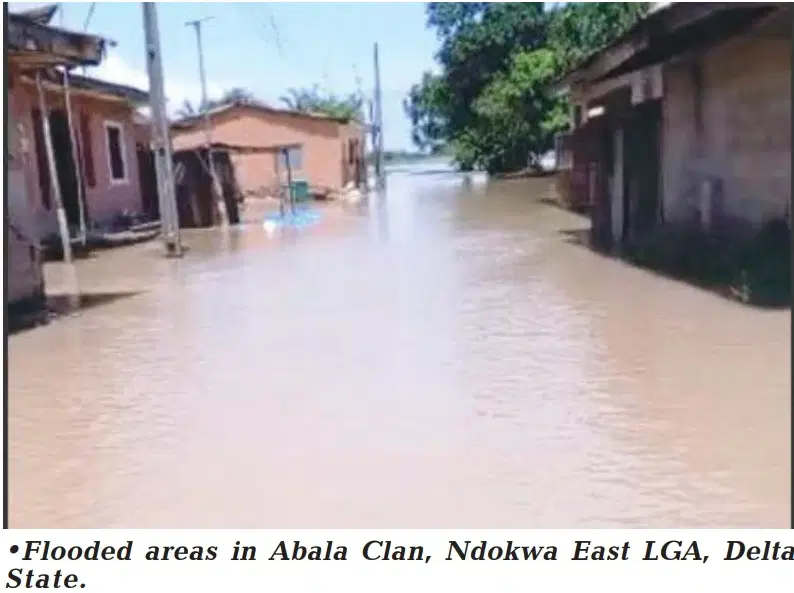A devastating flood has swept through 11 communities in Delta State, Nigeria, leaving a trail of destruction and displacement in its wake. The affected communities include:
- Abala-Obodo
- Abala-Uno
- Abala-Oshimili
- Onya
- Ase
- Asaba-Ase
- Ibedeni
- Umuoru
- Adia-Obiaka
- Uduophori
- Patani
Causes of the Flood
The flood is attributed to heavy downpour and the systematic release of water from the Lagdo Dam in Cameroon, causing the River Niger to overflow its banks.
Impact on Residents
Residents have been severely impacted, with many losing their homes, farmlands, and livelihoods. Clinton Omokaro, an indigene of Ase community, described the situation as “critical,” with access roads submerged and alternative routes being costly.
Appeal for Help
Ifeanyi Isaac Ogbolu, Youth President of Abala clan, appealed to the government for relief and support, stating that “lives and properties are being damaged heavily by this year’s flood.”
Government Response
The Delta State government has assured that it will not abandon flood victims. Sir Festus Ahon, Chief Press Secretary to the Governor, stated that the government is prepared to provide:
- Shelter
- Food
- Medical aid
- Educational support for displaced children
The government’s flood management team is working with SEMA and NEMA to sensitize communities along the coastal line to move to higher ground or Internally Displaced Persons’ camps.
Long-Term Solutions
Experts recommend measures to mitigate the effects of recurring floods and droughts, including:
- Building flood and drought-resistant infrastructure
- Effective disaster management systems
- Sustainable farming practices
- Reforestation and increasing green cover
Source: Vanguard





